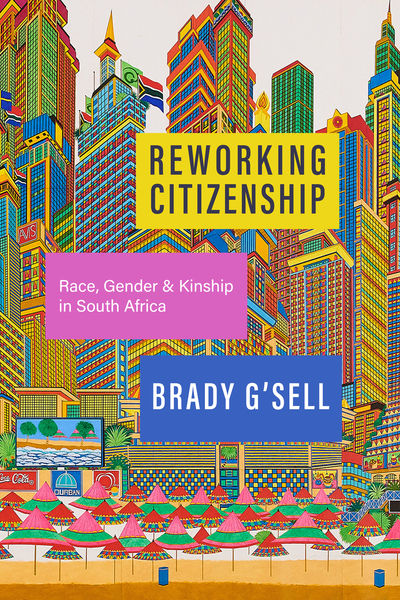
August 2024
312 pages.
from $32.00
Paperback now $16.00 (50% off)
Hardcover ISBN: 9781503636811
Paperback ISBN: 9781503639171
Ebook ISBN: 9781503639188
In scenes reminiscent of the apartheid era, 2021 saw South Africa's streets filled with mass protests. While the country is lauded for its peaceful transition to democracy with citizenship for all, those previously disenfranchised, particularly women, remain outraged by their continued poverty and marginalization. As one black woman protester told a reporter, reflecting on the end of apartheid: "We didn't get freedom. We only got democracy." What obligations do states have to support their citizens? What meaning does citizenship itself hold?
Blending archival and ethnographic methods, Brady G'sell tracks how historic resistance to racial and gendered marginalization in South Africa animate present-day contentions that regardless of voting rights, without jobs to support their families, the poor majority remain excluded from the nation. Through long-term fieldwork with impoverished black African, Indian, and coloured (mixed race) women living in the city of Durban, she reveals women's everyday efforts to rework political institutions that exclude them. Informed by her interlocutors, G'sell retheorizes citizenship as not solely tied to individual rights, but dependent on the security of social (often kinship) relations. She forwards the concept of relational citizenship as a means to reimagine political belonging amidst a world of declining wage labor and eroding state-citizen covenants.
About the author
Brady G'sell is Assistant Professor of Anthropology and Gender, Women's & Sexuality Studies at the University of Iowa.
"Reworking Citizenship is a brilliant investigation into the relational basis of political belonging. Simultaneously a deep analysis of a particular place(a port neighborhood of Durban, South Africa) as well as a development of theories of citizenship and processes of kinship, G'Sell brings an anthropologist's eye to history and a historian's eye to anthropology."
—Pamela Feldman-Savelsberg, Carleton College
"What G'Sell accomplishes in this book is something that I haven't seen anywhere else. She combines a magisterial command of the thicket of past and present South African laws and policies related to child support with a careful ethnography of women who have been most dependent upon and most disappointed by those systems. This work is extremely important and an absolute pleasure to read."
—Lynn M. Thomas, University of Washington